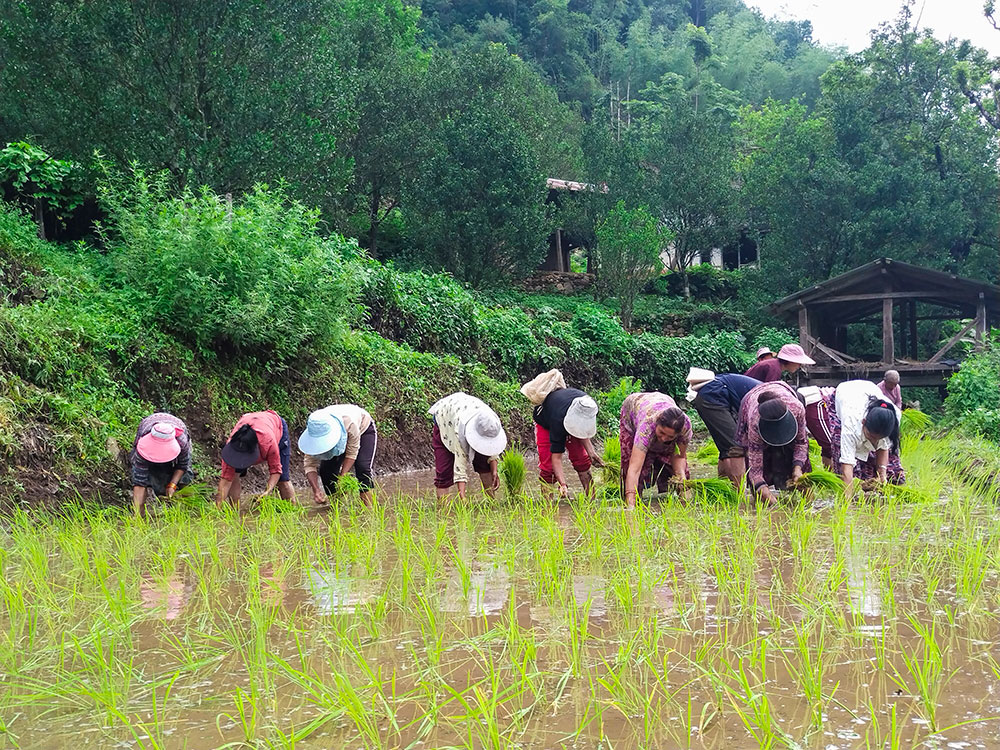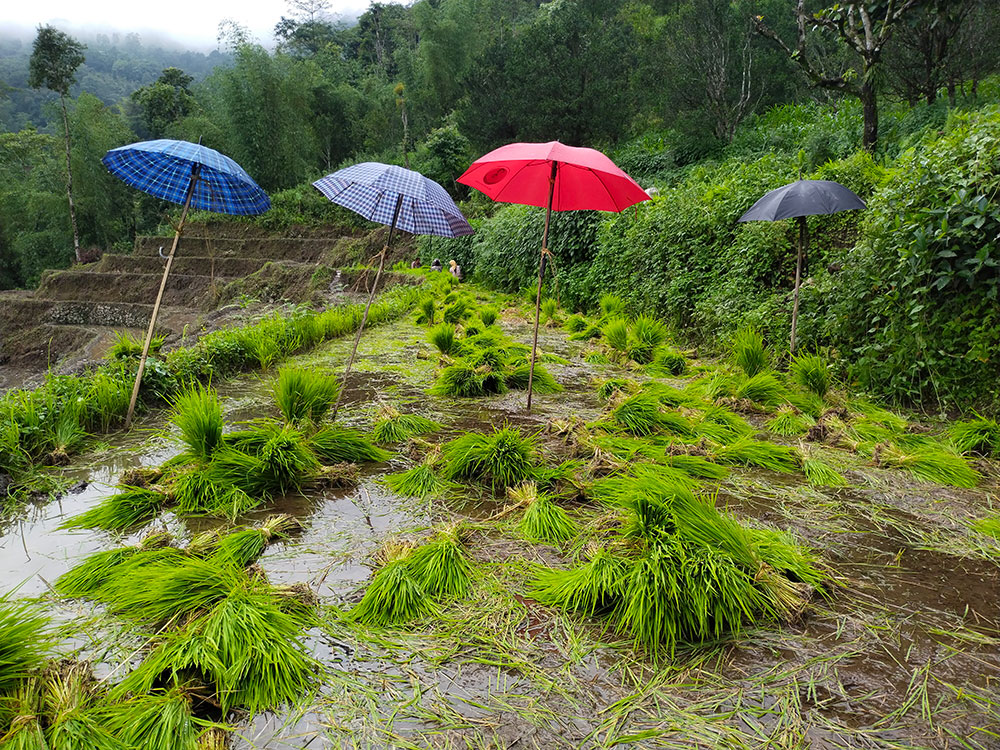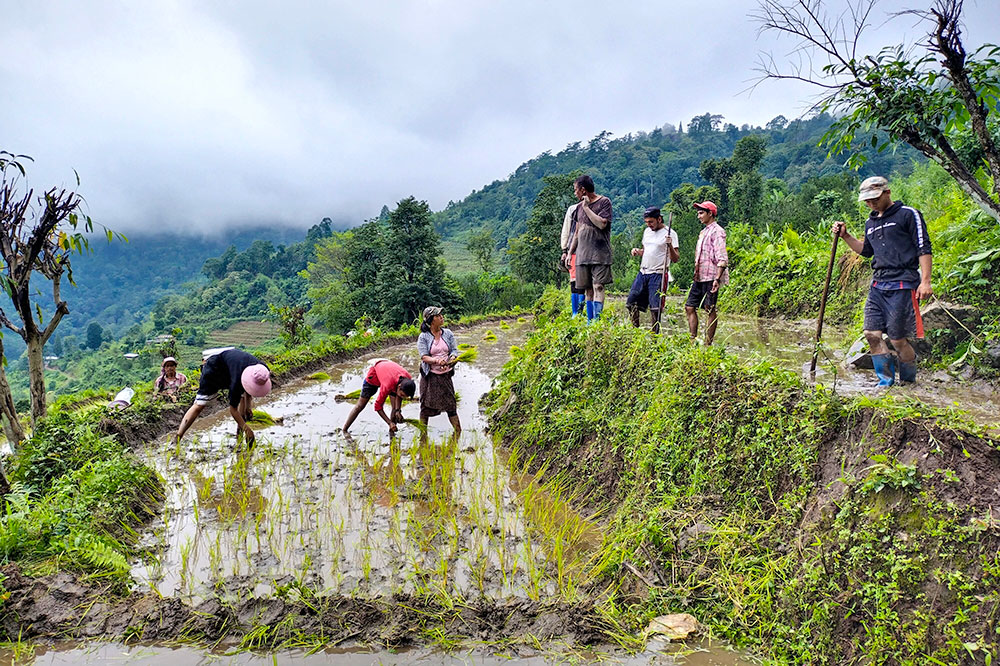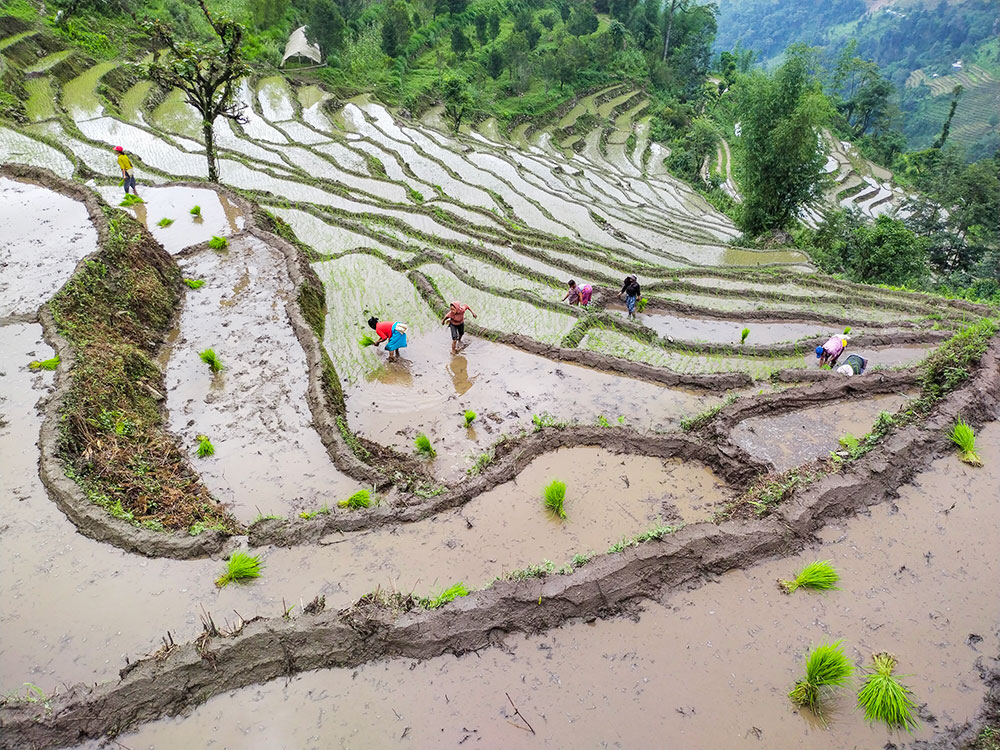YK Poudel
In the picturesque Dogak village in Dagana, the air is filled with the scent of fresh earth as terraces are being prepared for paddy plantation. The farmers are busy turning the soil, labelling it, and planting the sapling.
Ropai – the paddy cultivation – is an annual event for over a thousand farming communities in Dagana which keeps the farmer engaged from the time they grow the seedlings in nurseries to transplantation and harvest the reap.
Khem Lal Poudel, 77, is among the few remaining elderly in Dogak. He has been growing paddy all his life. Just last week, he completed paddy plantation in his four-acre field.
Poudel was just 7 years old when he first took part in paddy plantation. He remembers the time filled with fun and play.
“Guided by my father, I learned the ancient art of rice farming and the techniques passed down through generations in the paddy field,” said Poudel, looking back on the bygone day with deep longing.

Farmers in Dogak village, Dagana transplant paddy as monsoon rainfall arrives on time this summer


“Back in the days, we had to rely solely on our strength and simple tools,” Poudel said. “But the joy of seeing the seeds slowly grow into golden fields of rice was divine.”
Ropai, Poudel said, begins with one of the nimble male workers offering a few seedlings and starting the plantation, throwing the sapling bunch up to the terraces ahead to save transportation time.
Over the years, however, Poudel has witnessed a significant transformation in the way paddy is being grown. Technologies and machines have made the work less cumbersome. What used to take an entire day then can be achieved in a matter of a few hours today what with power tillers and transplaters in some places.
“There is not the same fun, though,” Poudel said, reminiscing his greener days. As much as he liked doing things the traditional way, power-tiller had to come in eventually. Now by much advanced in his age and lack of farmhands, Poudel had to reluctantly let the modern machine take over.
“Technology has their benefits, but there’s something inherently special about the traditional way of doing things,” Poudel remarks with a smile. “It connects us to our roots and the land deeply, almost spiritually.”
Then, Poudel required not less than 150 helpers to complete the entire farming cycle, from growing seedlings to plantation to a bountiful harvest.
According to Poudel, the family harvested only 2.1 tonnes of rice the previous year. “This land once used to produce about 5 tonnes of paddy annually,” he said. The loss of land to landslides, roads, wild predators and the shortage of farmhands have reduced production significantly.
That the paddy production has reduced does not seem to bother so much to Poudel than the loss of traditional ways of life in the village.
“Respect the land, care for it as you would a child, and the land gives you in abundance,” Poudel said. There is heavy wisdom in those words; it speaks of experience, and science as we know it today.
It is not for no reason that Poudel is universally revered in the village.
“Although my family could not produce paddy in an extensive way, I will continue to cultivate the land. It’s not just a livelihood; it’s a way of life, a sacred bond with nature,” Poudel said.


